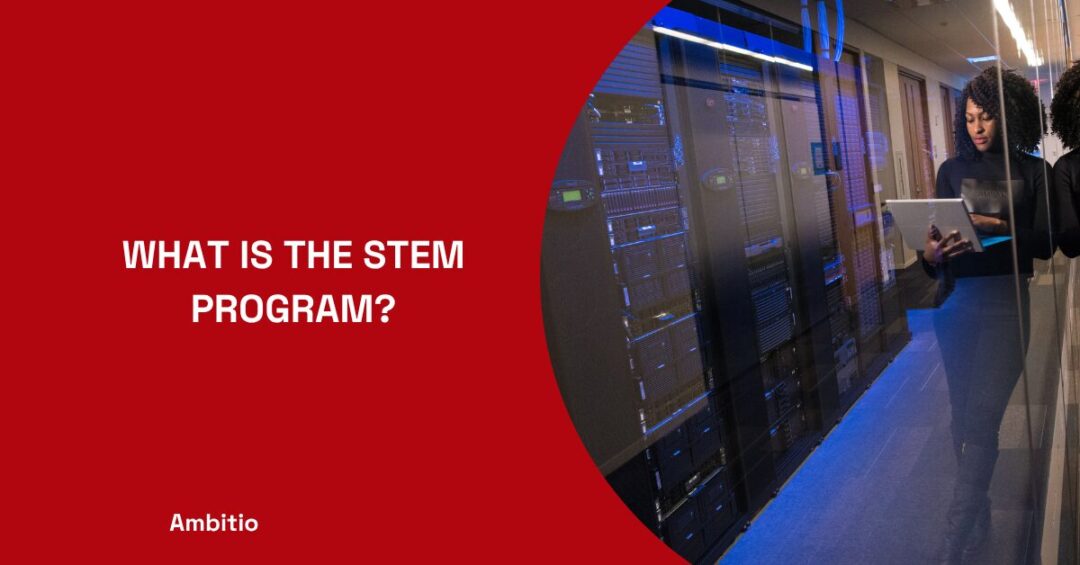14 June 2025
3 minutes read
What Is The STEM Degree Program?

Key Takeaways
- Understand what is the STEM program to unlock careers in science, technology, engineering, and mathematics with real global demand.
- Choose STEM majors to tap into fields offering 20-30% higher median salary than traditional degrees.
- Explore top global universities that turn STEM students into leaders across science and engineering industries.
80% of the world’s fastest-growing careers are rooted in STEM fields, yet most students still treat science and technology like that gym membership they never use—looks good on paper, painful in reality. The truth? Degrees in arts or generic disciplines are oversaturated, leaving graduates fighting for low-paying jobs in a brutally competitive market.
If you want higher salaries, real-world problem-solving skills, and actual job security, a STEM degree isn’t just an option—it’s the smart play. Forget trends. STEM education is where future-proof careers begin, from information technology to engineering and mathematics.
What Is STEM Education Meaning?
STEM education isn’t just some fancy school initiative cooked up by policymakers with too much coffee and not enough sleep. It’s the real-world toolkit you need if you don’t want to end up Googling “how to make passive income” every weekend. STEM stands for Science, Technology, Engineering, and Mathematics—aka the acronym for jobs that actually pay well. Forget those vague degrees with “creativity” in the title—STEM subjects are the backbone of science and technology shaping industries, economies, and yes—your salary.
Here’s what they don’t tell you in college brochures:
- STEM is an acronym that unlocks fields beyond labs—think computer systems, AI, robotics, and information technology—basically, the jobs taking over the world.
- The Bureau of Labor Statistics predicts a STEM workforce explosion, while non-STEM grads stay busy perfecting their “open to work” LinkedIn badges.
- Most STEM programs focus on problem-solving over rote learning—because solving equations matters more than memorizing them.
- A STEM skills boost earning potential—graduates earn at least 20-30% higher salary than their peers in non-STEM fields.
- Engineering and mathematics might sound boring, but they’re literally the engine behind higher education innovation, tech startups, and global breakthroughs in every related field you can name.
What Are The Benefits Of STEM Program?
Everyone loves to shout about “follow your passion,” but passion doesn’t pay rent—STEM careers do. While half the world’s still stuck in college majors with no real outcome, those majoring in a STEM field are getting recruited straight into STEM industries that are rewriting the future. Don’t fall for motivational posters when you could be chasing real STEM jobs with global impact. Forget what your cousin said about philosophy degrees—STEM disciplines are the educational programs that prepare students to actually matter.
Higher Paychecks, No Apologies
STEM graduates don’t talk about “starting small”—they skip to the part where median salary shoots 2x higher than non-STEM positions. Why? Because STEM occupations solve problems, not just recite them.
Global Demand, Local Advantage
While everyone’s crying about job shortages, STEM students are filling high demand roles in everything from computer science and information technology to biotech. Whether it’s in the U.S. or globally, careers in STEM are growing faster than your playlist.
Diversity = Innovation
The National Science Foundation and research programs are now aggressively boosting women in STEM, international students, and underrepresented groups—because the future doesn’t belong to one demographic, it belongs to the smartest minds from different STEM backgrounds.
More Than Just Labs
Think STEM subjects are just lab coats and test tubes? Nope. Political science, research and education, engineering and math, even startups in STEM industries—all of it’s STEM literacy. Real influence. Real money. Real world-changing power.
5 Popular Countries To Offer Top STEM Degree Programs
Over 60% of the world’s STEM professionals come from just a handful of countries. Why? Because these nations don’t just teach STEM subjects—they build STEM industries around them. If you’re thinking about where to study STEM, here’s your shortcut list to the global heavyweights.
| Country | Top 3 Universities for STEM Programs |
|---|---|
| United States | 1. Massachusetts Institute of Technology (MIT) 2. Stanford University 3. California Institute of Technology (Caltech) |
| United Kingdom | 1. University of Cambridge 2. Imperial College London 3. University of Oxford |
| Australia | 1. University of Melbourne 2. Australian National University (ANU) 3. University of Sydney |
| Canada | 1. University of Toronto 2. University of British Columbia (UBC) 3. McGill University |
| France | 1. Sorbonne University 2. École Polytechnique 3. Université PSL (Paris Sciences & Lettres) |
| Germany | 1. Technical University of Munich (TUM) 2. RWTH Aachen University 3. Heidelberg University |
Conclusion
STEM careers aren’t just jobs—they’re education programs that prepare students for high demand industries across science and engineering, computer science and information technology, and beyond. With STEM graduates leading research programs at every research center, and initiatives like the National Science Foundation driving women in STEM and international students, this isn’t optional—it’s the future.
Whether you’re in senior high school or already majoring in a STEM field, STEM literacy gives you the skills and knowledge to actually succeed in the field. Forget the buzzwords—STEM occupations mean real growth, real median salary, and a focus on STEM that shapes STEM industries, science education, and global careers in STEM. If you’re serious about the future, study STEM, build it, and own it.
Do it right. Apply for the STEM Degree Programs with Ambitio before your OPT ends and turn your career goals into career wins.
FAQs

You can study at top universities worldwide!
Get expert tips and tricks to get into top universities with a free expert session.
Book Your Free 30-Minute Session Now! Book a call now




























